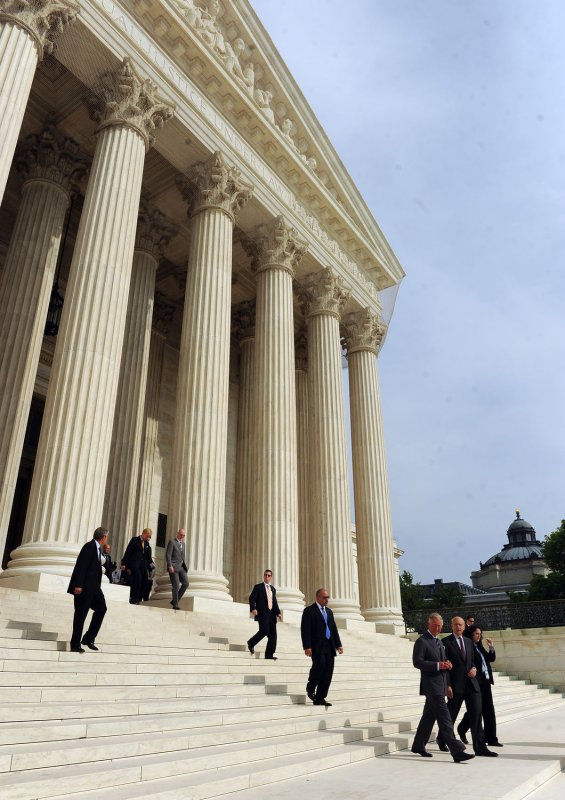The Supreme Court, as seen in a file photo. The court ruled against other courts having the ability to act on emissions. UPI/Roger L. Wollenberg |
License Photo
WASHINGTON, June 20 (UPI) -- A unanimous U.S. Supreme Court ruled Monday states, cities and private entities can't ask federal judges to put caps on emissions from fossil-fuel power plants.
The decision is a major blow to clean air efforts by the states.
New York City, eight states and three private land trusts filed suit to "maintain federal common law public nuisance claims against carbon-dioxide emitters (four private power companies and the federal Tennessee Valley Authority)."
The groups asked for a decree from a federal judge setting carbon-dioxide emissions for each defendant at an initial cap, to be further reduced annually.
"The lawsuits considered here began well before (the Environmental Protection Agency) initiated efforts to regulate greenhouse gases," Justice Ruth Bader Ginsburg said in her opinion. Two groups of plaintiffs filed separate complaints in a federal court against the same five major electric power companies.
The complaints said the power companies are the largest emitters of carbon dioxide in the nation. By contributing to global warming, the complaints asserted, the emissions substantially and unreasonably interfered with public rights in violation of the federal common law of interstate nuisance, or in the alternative, of state tort law.
A federal judge dismissed both suits as presenting political questions, not legal ones, but the federal appeals court in New York reversed.
The U.S. Supreme Court reversed the appeals court. "The Clean Air Act and the Environmental Protection Agency action the act authorizes, we hold, displace the claims the plaintiffs seek to pursue," Ginsburg said.
"The act's prescribed order of decision making -- first by the expert agency, and then by federal judges -- is yet another reason to resist setting emissions standards by judicial decree under federal tort law," the opinion said. "The appropriate amount of regulation in a particular greenhouse gas-producing sector requires informed assessment of competing interests. The Clean Air Act entrusts such complex balancing to EPA ... in combination with state regulators. "
Justice Sonia Sotomayor, who sat on the federal appeals court in New York before being tapped for the Supreme Court, took no part in the case.















